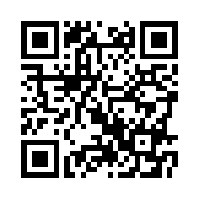Abstract
In this article Claude Le Jeune’s Dix Pseaumes is investigated, with special attention to its historical context. The Dix Pseaumes came into existence during the initial phase of the Frenchwars of religion, between the Edict of Ambois on 19 March 1563 and its publication in 1564,with Le Jeune as its composer and Theodore de Bèze wrote the texts. De Bèze’s influence in forming the French Protestant’s view on armed resistance makes his connection to the Dix Pseaumes very interesting. It is argued that the non-sequential order of the psalms in this work cannot be accepted as unintentional, but relates directly to the political situation of that time. The texts were evidently chosen to mirror a well-defined consciousness of the French Protestants’ particular existential situation. This is worked out in detail with respect to theopening psalm (Psalm 96), but can be detected in all the other psalms as well. The closing psalm (Psalm 81) ends with an upbraiding of the people’s unkindness in refusing the yoke of God’s law. Thus the obstinate disobedience of the people is blamed for the sad state of affairs in the country. This sorrowful note is echoed in the chanson spirituelle, Mais qui es-tu, which closes Le Jeune’s collection.Copyright information
- Ownership of copyright in terms of the Work remains with the authors.
- The authors retain the non-exclusive right to do anything they wish with the Work, provided attribution is given to the place and detail of original publication, as set out in the official citation of the Work published in the journal. The retained right specifically includes the right to post the Work on the authors’ or their institutions’ websites or institutional repositories.
Publication and user license
- The authors grant the title owner and the publisher an irrevocable license and first right and perpetual subsequent right to (a) publish, reproduce, distribute, display and store the Work in any form/medium, (b) to translate the Work into other languages, create adaptations, summaries or extracts of the Work or other derivative works based on the Work and exercise all of the rights set forth in (a) above in such translations, adaptations, summaries, extracts and derivative works, (c) to license others to do any or all of the above, and (d) to register the Digital Object Identifier (DOI) for the Definitive Work.
- The authors acknowledge and accept the user licence under which the Work will be published as set out in https://creativecommons.org/licenses/by/4.0/ (Creative Commons Attribution License South Africa)
- The undersigned warrant that they have the authority to license these publication rights and that no portion of the copyright to the Work has been assigned or licensed previously to any other party.
Disclaimer: The publisher, editors and title owner accept no responsibility for any statement made or opinion expressed by any other person in this Work. Consequently, they will not be liable for any loss or damage sustained by any reader as a result of his or her action upon any statement or opinion in this Work.
In cases where a manuscript is NOT accepted for publication by the editorial board, the portions of this agreement regarding the publishing licensing shall be null and void and the authors will be free to submit this manuscript to any other publication for first publication.
Our copyright policies are author-friendly and protect the rights of our authors and publishing partners.

